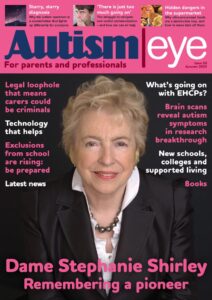People with traits of autism are more likely to have eating disorders, a new study shows.
The Japanese research showed the stronger the person’s autistic traits, the fussier they were over food.

Tom Quinn of Beat Eating Disorders says narrow diets can have a damaging impact on health
The population study found those with strong autistic traits were more likely to show increased sensitivity to food texture, taste and mixed flavours.
Based on an online questionnaire, the study also found a link between picky eating and aftertaste sensitivity.
Nine in ten have high or low sensory responses
Up to 90 per cent of autistic people are thought to have heightened or heavily-reduced responses to sensory experiences. These experiences include taste, smell, touch, hearing and vision.
A wealth of previous research has also linked autism to dietary disorders.
The Research Institute of the National Rehabilitation Centre for Persons with Disabilities, in Tokorozawa, Japan, carried out the new study.
The Institute based its survey on responses from 91 people.
‘Disgust for acidity in foods’
Dr Makoto Wada was one of the lead researchers in the study.
Wada said because “disgust for acidity in foods is related to narrowing of food selectivity” it is possible that “reducing acidity from the diet for such people might lead to an increase in food choices”.
Tom Quinn is a spokesperson for the charity Beat Eating Disorders.
He said some people who only eat within a very narrow repertoire of foods “may not be able to get the essential nutrients needed for their health”.
Negative impact
Quinn added that this “can negatively impact wellbeing and physical health”.
The researchers published the new study in the European Eating Disorders Review earlier this month.
If you are worried about your own or someone else’s health, you can contact Beat Eating Disorders on 0808 801 0677, or at www.http://beateatingdisorders.org.uk
Related:
Published: 26 June 2022















